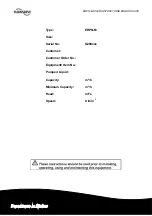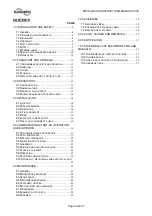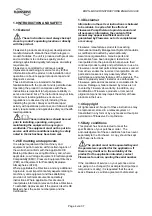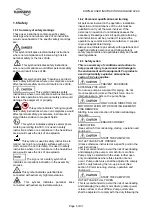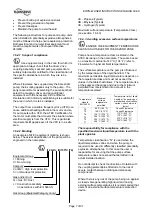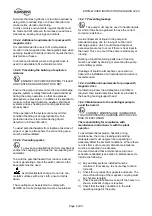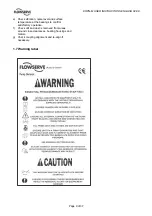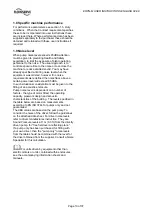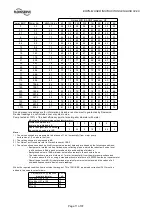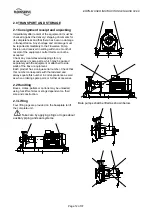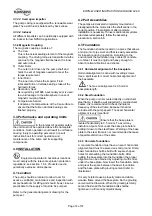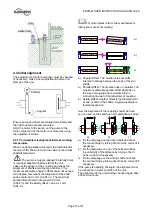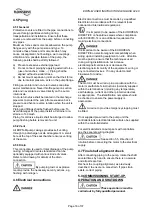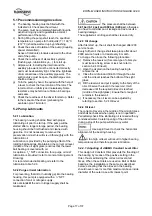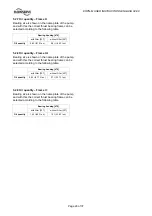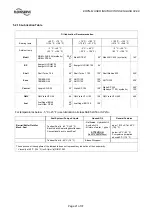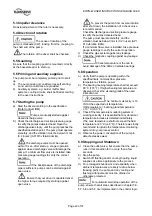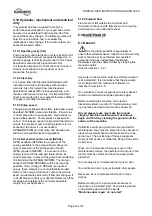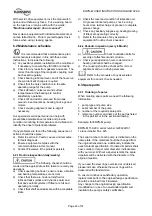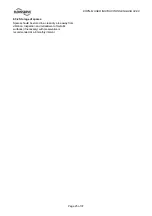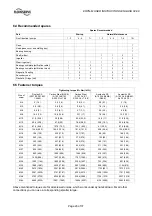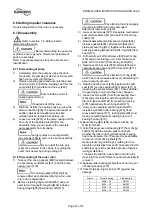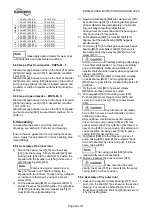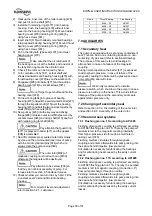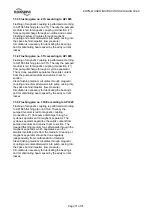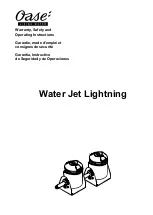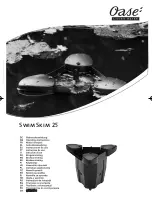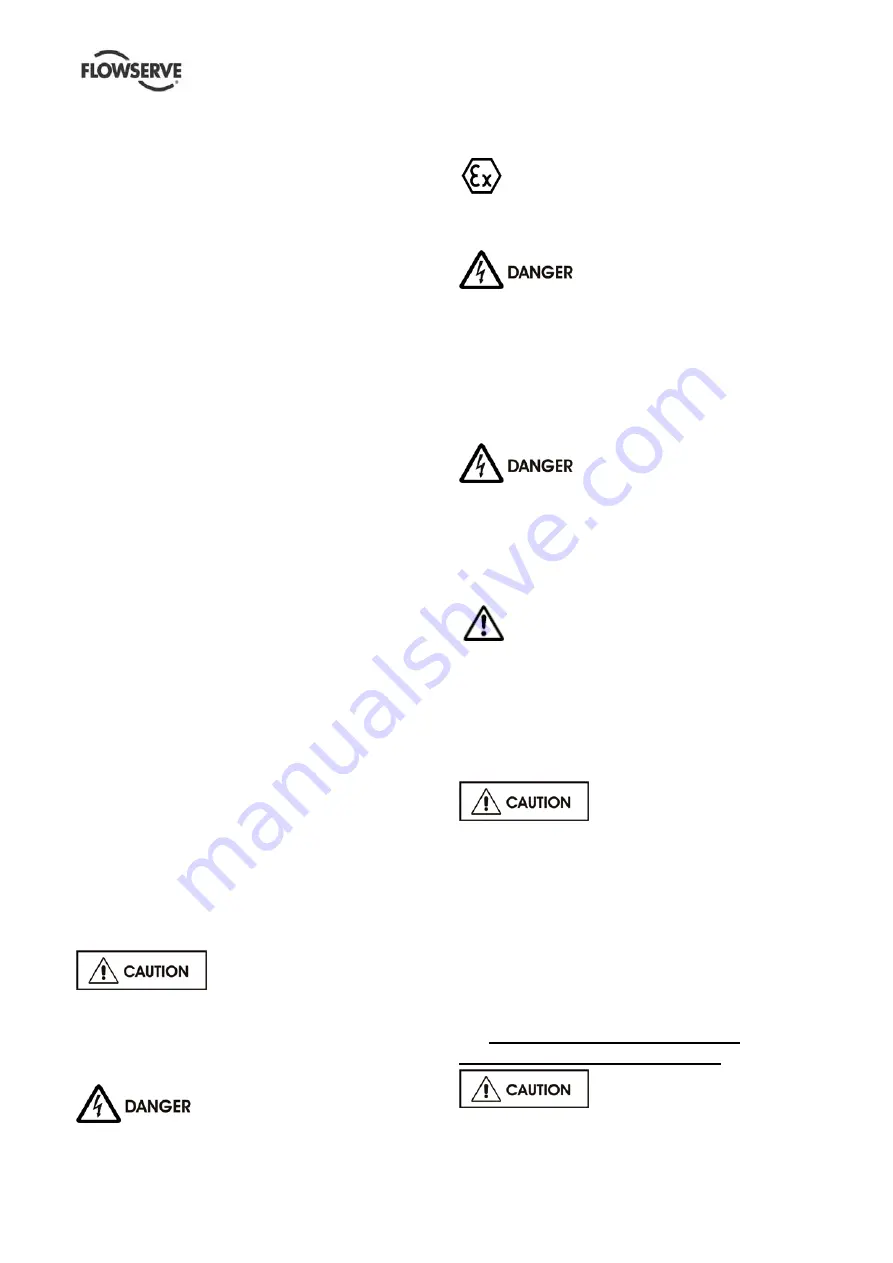
ERPN-M USER INSTRUCTIONS ENGLISH 02-08
Page 16 of 37
4.5 Piping
4.5.1 General
Protective covers are fitted to the pipe connections to
prevent foreign particles entering during
transportation and installation. Ensure that these
covers are removed from the pump before connecting
any pipes.
Maximum forces and moments allowed on the pump
flanges vary with the pump size and type. To
minimize these forces and moments which may
cause misalignment, hot bearings, worn couplings,
vibration and a possible failure of the pump, the
following points shall be strictly followed:
a) Prevent excessive external pipe load.
b) Do not connect piping by applying external force
(use of wrenches, crane,...). Piping shall be
aligned without residual stress.
c) Do not mount expansion joints so that their force,
due to internal pressure, acts on the pump flange.
Fitting an isolator and non-return valves can allow
easier maintenance. Never throttle pump on suction
side and never place a valve directly on the pump
inlet nozzle.
A non-return valve shall be located in the discharge
pipework to protect the pump from excessive back
pressure and hence reverse rotation when the unit is
stopped.
Piping and fittings shall be flushed before use. To
avoid damages of the pump install a Y-strainer or a
strainer of 40 mesh.
Piping for corrosive liquids shall be arranged to allow
pump flushing before removal of a unit.
4.5.2 Vent
All ERPN-M pump casings provides self venting
through top discharge nozzle arrangement. A small
bore at the top of the seal chamber ensures venting
of the same.
4.5.3 Drain
This connection is used for total drainage of the pump
casing. A flanged drain is standard and can be
optionally equipped with various kinds of valves.
Refer to GA drawing for details of the drain
connection.
By pumping toxic or explosive
media, provide the necessary security actions, e.g.
flushing with nitrogen.
4.6 Electrical connections
Electrical connections must be made by a qualified
Electrician in accordance with the relevant local
national and international regulations.
It is important to be aware of the EUROPEAN
DIRECTIVE on hazardous areas where compliance
with IEC60079-14 is an additional requirement for
making electrical connections.
It is important to be aware of the EUROPEAN
DIRECTIVE on electromagnetic compatibility when
wiring up and installing equipment on site. Attention
must be paid to ensure that the techniques used
during wiring/installation do not increase
electromagnetic emissions or decrease the
electromagnetic immunity of the equipment, wiring or
any connected devices. If in any doubt contact
Flowserve for advice.
The motor must be wired up in accordance with the
motor manufacturer's instructions (normally supplied
within the terminal box) including any temperature,
earth leakage, current and other protective devices
as appropriate. The identification nameplate should
be checked to ensure the power supply is
appropriate.
A device to provide emergency stopping must
be fitted.
If not supplied pre-wired to the pump unit the
controller/starter electrical details will also be supplied
within the controller/starter.
For electrical details on pump sets with controllers
see the separate wiring diagram.
See section 5.5,
Direction of
rotation
before connecting the motor to the electrical
supply.
4.7 Final shaft alignment check
After connecting piping to the pump, rotate the shaft
several times by hand to ensure there is no seizure
and all parts are free.
Recheck the coupling alignment, as previously
described, to ensure no pipe strain. If pipe strain
exists, correct piping.
5.0 COMMISSIONING START-UP,
OPERATION AND SHUTDOWN
These operations must be
carried out by fully qualified personnel.

